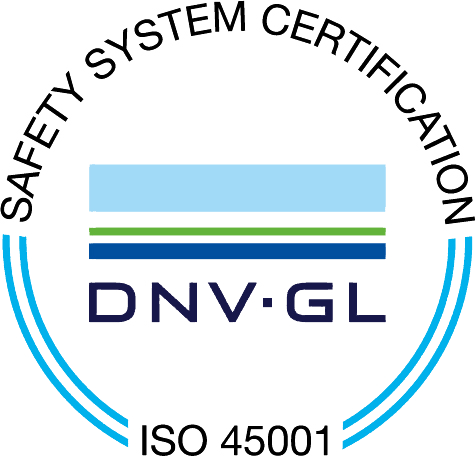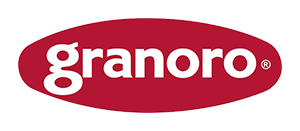
GRANORO CERTIFICATIONS
We have a culture of producing well. In addition to strict internal controls, the entire manufacturing process at Granoro is certified by external bodies that guarantee high standards of quality

The Certification of the Organic Method of Production
Pastificio Granoro has adopted the ICEA control system for the Certification of the Organic Method of Production according to EC Reg. 2018/848 implemented nationally by Ministerial Decree 18354 of November 27th, 2009. Organic foods are very important from the point of view of health and they are produced and processed while respecting the environment. In organic farming, no chemicals (fertilizers, herbicides, fungicides, insecticides, pesticides in general) or Genetically Modified Organisms (GMOs) are used. The Certification of the Organic Method of Production demonstrates that it complies with all the requirements in the production of its pasta relating to:
- qualification of the organic suppliers (who must demonstrate their certification of compliance with the organic method of production issued by the reference body);
- checks upon receipt of the organic products (possible through the control codes on the labels for packaged products, mandatory information, lot/batch certificates);
- 2 separate production cycles, organic and conventional (caution and prevention with respect to contamination);
- analysis at laboratories certified by ACCREDIA that carry out their work using highly sensitive analytical methods;
- management of non-compliance (how the operator behaves towards his supplier if the consignment delivered is positive upon analysis).

The ISO 14001: 2015 Certification
Acquiring the ISO 14001: 2015 Environmental Certification for Pastificio Granoro means choosing to respect the territory that hosts it every day and to guarantee leaving the environment intact for the future of its children, carrying out self-monitoring and assuming responsibility voluntarily, with the aim of continuously improving its own environmental performance. By equipping itself with an Environmental Management System, Pastificio Granoro has taken on the responsibility of:
- identifying its significant environmental aspects;
- guaranteeing the compliance of its structures and performance with the environmental legislation in force;
- committing itself to the continuous improvement of its environmental performance.

The EMAS Certification
The EMAS Certification for Pastificio Granoro means demonstrating that it focuses its efforts and resources on technologies and products that have a smaller and smaller impact on the environment. Environmental protection and the correct application of an Environmental Management System are strategic priorities for Pastificio Granoro. The EMAS system, established with EEC Regulation 761/2001, is a voluntary environmental and industrial policy tool, aimed at promoting constant improvements in the environmental efficiency of industrial activities. We decided to join the EMAS system, adopting strict internal organisational rules and obtaining the Declaration of Participation in the System, after verification was carried out by an independent accredited body. The Declaration is recognised in all EU countries and is equivalent to a kind of environmental certification. Pastificio Granoro’s commitment is constant and precise, and consists of:
- fully complying with environmental laws;
- adopting policies, programs and environmental management systems with the aim of operating with a view to preventing pollution;
- improving, as much as possible, its environmental performance;
- systematically, objectively and periodically assessing the results it achieves;
- communicating to the public the systems adopted and the results obtained. The validated environmental declaration summarises the commitments undertaken, it is public and it is periodically updated.

The BRC Certification
For Pastificio Granoro, acquiring the BRC (British Retail Consortium) Certification means operating with an eye on safety and ensuring that its products are obtained in compliance with international quality standards that are well defined in the BRC legislation. BRC Certification is an operational tool used by all British GDO retailers and aims at creating a common basis for qualifying their suppliers of GDO-branded products, so as to be able to ensure the quality and safety of food products sold for consumer protection.
Through this voluntary certification, Pastificio Granoro shows that it respects and is subjected to rigorous controls:
- the structural specifications of its production environments;
- the specifications of its products and processes;
- its own rules of conduct for staff and visitors;
- its own hygiene rules for staff and visitors;
- the absence of allergens for sensitive consumers;
- the absence of genetically modified organisms;
- the traceability of the raw materials used as well as of the finished product.

IFS Certification
For Pastificio Granoro, acquiring the IFS (International Food Standard) Certification means voluntarily choosing to adopt an operational tool to qualify its products and to guarantee a management system focused on the quality and on the health and safety of its products. A tool similar to the BRC, the IFS was developed by the operators of large-scale distribution in France and Germany with the aim of managing the processes and limiting risks, and today it represents an international standard for the verification of branded food, both retail and wholesale products. Also adopted by the main trade associations, this standard rule is applied during all the stages of the production and processing chain of raw materials coming from agriculture and farm animals. Its main elements are:
- the adoption of good reference practices;
- the adoption of the H.A.C.C.P system;
- the adoption of a documented quality management system;
- the control of the standards for the workplace, for the product, for the process and for the personnel;
- existence of specifications for all aspects of the production process.

La Certificazione FSSC 22000
The UNI EN ISO 22000 standard is an international standard that defines the requirements of a management system for food safety.
It is applicable on a voluntary basis by all of the operators in the food business, able to assess and demonstrate the compliance of products in terms of food safety and to ensure an effective control of risk factors.
The standard is based on:
- complete correspondence with the HACCP principles of the Codex Alimentarius;
- compliance with ISO 9001: 2008 and ISO 14001: 2004 standards;
- the possibility of application to all the organisations involved in any aspect of the food chain and who wish to implement systems capable of systematically supplying safe products.
Pastificio Granoro decided to become certified according to the ISO 22000 standard in order to:
- demonstrate its commitment to scrupulous risk management;
- identify and control the dangers for the consumer and their implications for food safety, in order to make sure that they are safe for human consumption;
- obtain tangible and demonstrable improvements in performance in the area of food safety by implementing a management system aimed at providing safe products for the consumer;
- demonstrate compliance with the legislative requirements in terms of food safety;
- assess and satisfy customer requirements by operating in compliance with food safety requirements;
- effectively communicate the food safety issues to all the levels of the supply chain;
- optimise the resources.

Kosher Certification
Obtaining the Kosher certificate means producing food suitable for consumption and compliant with Kosher nutrition rules so that it can be consumed by Jews, in accordance with the dietary rules of the Jewish religion established in the Torah. Food that meets the requirements of casherut is termed kasher or casher.
Kosher certification is obtained following a control process by a rabbinical body specializing in Kosher certifications, which supervises the production of a food in order to ensure compliance with Jewish dietary rules, and this is indicated on the product by a special symbol.
A Kosher certified product must meet very strict quality standards and all production and packaging procedures as well as every single ingredient used in its preparation must comply with the restrictive laws of Kasheruth. Compliance with these strict rules is periodically verified by experts on the production site and the certification (which has an expiry date and must be repeated periodically) can be revoked at any time.
However, these rules constitute a kind of protection for the consumer regardless of his/her religion and it is precisely for this reason that over the years Kosher certification has become a real brand of quality that is recognised all over the world. In some countries such as America, in fact, the largest number of consumers of Kosher products are not Jews, but people of any religion who are seeking a guarantee of quality and authenticity in this brand

Halal Certification
The HALAL brand is a guarantee brand that, when placed on the product, assures consumers that the products and their ingredients are all HALAL products and that they have followed genuine procedures and treatments in all of the stages of processing following HALAL quality standards.
Halal is an Arabic word that means lawful, so in the Muslim context the term refers to everything that is permitted according to Islam with particular reference to the rules on nutrition.
HALAL certification is mandatory for consumption by Muslim citizens and therefore it also represents an essential customs requirement for the entry and marketing of food in some countries of Islamic faith.
Pastificio Granoro obtained the HALAL quality certification from the HALAL Food Council of Europe (HFCE) which certifies the preparation of food and drinks, in a lawful way according to Islamic law, proposing itself as an aid to the practising Muslim in his/her choice of food.
The HFCE has competence in reviewing the products, ingredients, preparation and treatment and the hygienic and sanitary procedures necessary in the production of the certified product with HALAL quality, as well as the correct training of personnel, thus ensuring correct knowledge on the methods of production and the handling of the same.
The services rendered by HFCE are also of assistance to the manufacturing and/or exporting company to which, after a careful control, a certificate is issued certifying the compliance of the production or exportation of its articles with Islamic jurisprudence.

ISO 45001: 2018 Certification
ISO 45001: 2018 (Occupational Health and Safety Management System standard) is an international reference standard to help companies define objectives and policies in favor of the Safety and Health of Workers, in compliance with current regulations and depending on the dangers and risks that are potentially present in the workplace. The implementation of the system for the management of the Safety and Health of Workers makes it possible to manage safety issues in the company, by means of a priori risk assessment and the reducing of risks via preventive actions resulting from a plan for continuous improvement. This concept of management is in line both with the corporate concept of orientation towards the motivation of internal human resources and with the company’s willingness to address the problems relating to the quality of life and safety in the workplace in a coordinated manner as an opportunity to harmonize development, productivity and motivation of the staff.
The creation of a system that is compliant with the ISO 45001: 2018 standard requires a number of elements:
- an adequate policy for the Safety and Health of Workers that also includes a program for continuous improvement
- the identification of dangers, the assessment of potential risks and the analysis of the specific legislative requirements
- monitoring the performance of the system for the management of health and safety
- continuous reviews and assessments for the optimization.of the system.

AEO certified
The AEO certificate is an “Authorised Economic Operator” certificate issued by the Customs Agency to operators who, upon request, comply with the quality requirements deemed suitable.
It is therefore a “status”, that is a certified condition regarding its situation of reliability and solvency in relation to the customs authorities, guaranteeing strict compliance with customs regulations and product safety.

GLYFOSATE FREE for the “Granoro Dedicato” Line
Granoro Dedicato, with its GLYPHOSATE FREE certification, goes beyond respecting legal limits for the potential presence of glyphosate, thus offering the market/consumer GLYPHOSATE-FREE* pasta.
The absence of glyphosate residues has been verified throughout the production chain with an analytical monitoring activity conducted by a third-party entity (DNV-GL).
- Absence (quantity below the analytical method’s detection limit) of glyphosate residues in the finished product, through controlled use along the agri-food chain.

The ISO 22005:2008 Certification
The level of control and traceability of our supply chain is so meticulous that every single batch of wheat supplied by the farmer can be traced back to the location of the land through identification of the parcel and cadastral map.
Granoro Dedicato is the first pasta produced within the cereal-growing supply chain of Puglia to obtain the ISO 22005:08 certification from DNV (Det Norske Veritas), one of the main independent certifying bodies in the world.
Traceability throughout the pasta’s entire production chain is the instrument chosen by Granoro to:
- guarantee the production of pasta using wheat grown exclusively in the Tavoliere area of Puglia, known since time immemorial as the wheat belt of Italy;
- work with advanced pasta-making technology to create pasta of a superior quality;
- enable punctual identification of the batches and amounts of pasta produced using wheat from Puglia;
- support food safety and quality objectives;
- identify the history and origin of the product;
- make it easier for consumers to check products and obtain specific information about them.
The entire system is controlled using a monitoring program that identifies the stages, critical points, responsibilities and elements subject to traceability for each stage of the process.


